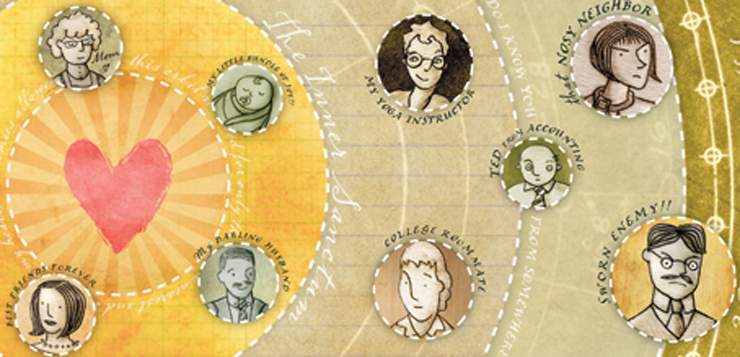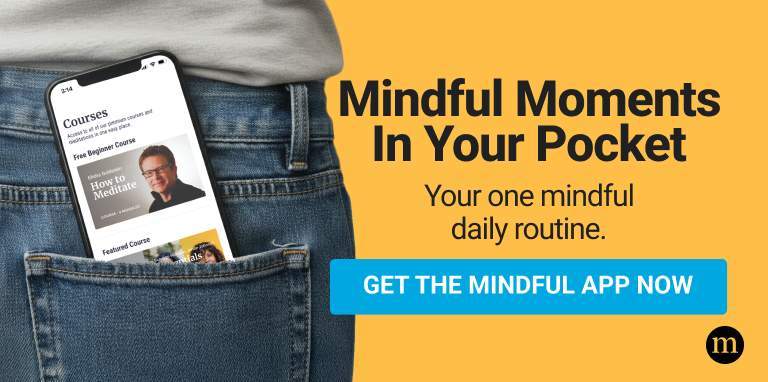Overhearing Estrangement: A Restaurant Moment of Clarity
Sitting alone in a New York restaurant, I half-noticed a conversation at the next table until one sentence stood out: “The only problem is that my sister Margie hasn’t spoken to my sister Evelyn in seven years.” The word only sounded almost comic beside such a deep rupture. I don’t have siblings, but I once experienced a painful estrangement from a close friend—and I know how much it hurts.
When Feedback Feels Like an Attack
That friend, also a professional colleague, sent me an unsolicited “feedback” letter about something I’d done. I felt deeply insulted and uncharacteristically enraged. The letter replayed in my mind: How could he have said that about me? Months later, heading to meetings where he might attend, the same thought returned—along with the same upset.
Teaching Loving-Kindness: Beloved, Neutral, and “Enemy”
When I teach loving-kindness (metta) meditation—the cultivation of universal benevolence—I often describe four categories: dearly beloved people, friends, neutral people, and enemies. If I imagine concentric circles of people around my heart, “enemies” feel farthest away. The aspiration of metta is that everyone becomes equally dear.
A very close friend once asked, “Do you have any enemies?”
“Only one,” I replied, and told her about the letter. I wished I could “get over it,” yet the pain still riled me. Even naming it felt embarrassing.
“How Could He Have Said That About Me?”—The Loop
Driving to an event where my “enemy” and I would share the podium, I felt relaxed—until the familiar thought arose: How could he have said that about me? Then something shifted: Because it was true. I felt relief.
A Turning Point: Seeing the Truth Behind the Hurt
At the meeting we greeted each other cordially and soon made plans to reconnect. Later, I said, “Let’s talk about what happened.” I described receiving the letter and my long-held upset, then added, “It was such a relief to stop hiding from myself. I realized you said it because it was true.”
“No it wasn’t,” he said. “Not the way I said it.” He admitted he’d been embarrassed by his impulsive tone, which kept him from reaching out.
“You were right about me, though,” I said. “I had made the wrong decision. I was covering it up, so I wouldn’t have to see it or deal with it. Your letter became something I could be angry at—instead of looking at my own issues.”
Reunion and Repair: Naming What Happened
There we were—good friends with good communication skills—both wounded and both avoiding the discomfort of addressing it. The insult itself wasn’t catastrophic. But being “attacked” by someone I trusted, and the sting of embarrassment echoing older embarrassments, was powerful. The mind protects itself by building barriers around a wound, steering us away from the scene of the hurt.
Embarrassment, Ego, and the Mind’s Protective Walls
I’m not entirely sure how wounds heal, except that time helps. On the day of our rapprochement, the necessary and sufficient conditions for change finally aligned: willingness, honesty, and the softening that loving-kindness practice cultivates. Seeing what was really making me mad—my own avoidance—let warmth and truth in.
Time, Conditions, and Change: How Wounds Heal
Metta doesn’t erase harm; it opens space to meet harm honestly. With time, a steadier nervous system, and the courage to feel embarrassment without defending against it, we can look directly at what hurts—and respond with clarity rather than reflex.
From Enemy to Friend: What Loving-Kindness Makes Possible
We exchanged greetings. We met again. The friendship renewed. Loving-kindness aims for a heart where no one is exiled to the outer rings. May the birthday party I overheard go well—and may those sisters, too, find the conditions that make repair possible.







